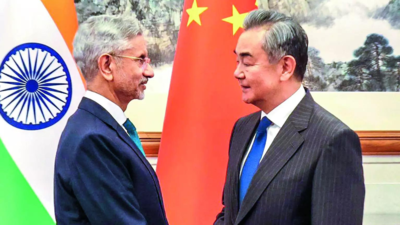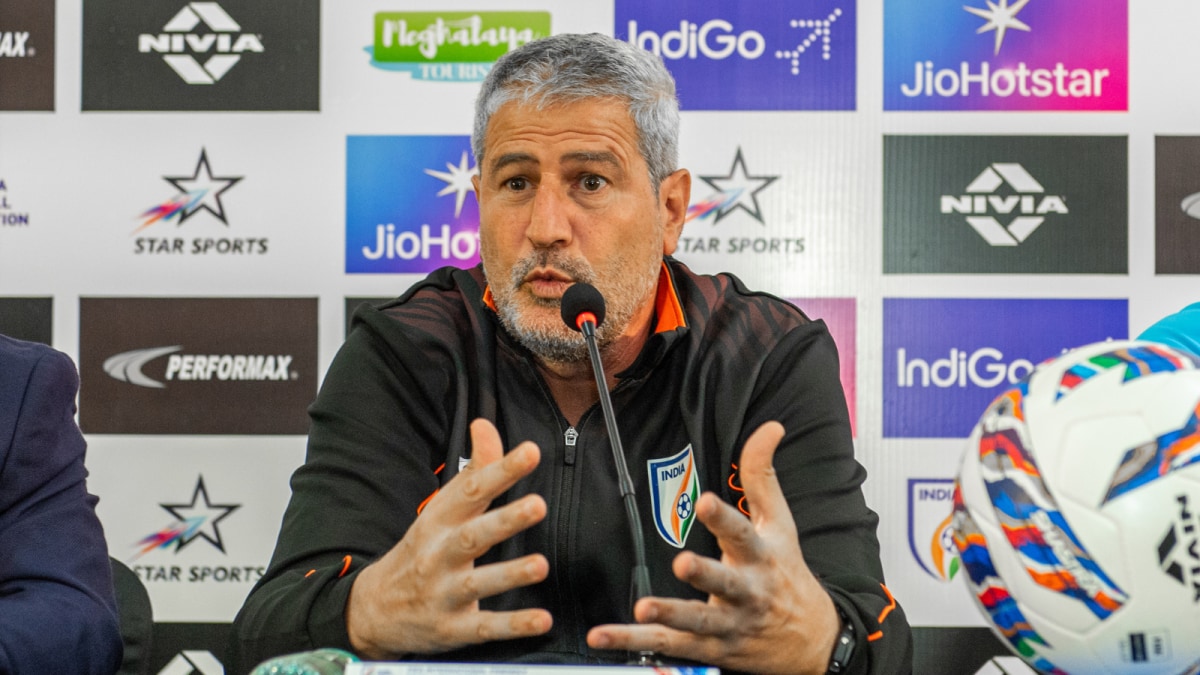ARTICLE AD BOX

EAM S Jaishankar with his Chinese counterpart Wang Yi in Beijing
NEW DELHI: External affairs minister S Jaishankar's first visit to China in six years, amid the thawing of Sino-India ties, saw him pressing Beijing to further address border issues, including through de-escalation, while also urging China to avoid restrictive trade measures.In a meeting with his counterpart Wang Yi, Jaishankar acknowledged "good progress" in efforts to normalise the relationship saying it's a result of the resolution of friction along the border and both sides' ability to maintain peace and tranquillity."This is the fundamental basis for mutual strategic trust and for smooth development of bilateral relations. It is now incumbent on us to address other aspects related to the border, including de-escalation," said the minister.
The Indian side said both countries agreed to take "practical steps", including travel to each other's country and direct flight connectivity, for facilitating people-to-people exchanges.
India and China had resolved the almost five-year-old military standoff in eastern Ladakh last October.Need to avoid restrictive trade measures: EAM India and China had resolved the almost five-year-old military standoff in eastern Ladakh last Oct, leading to a bilateral meeting between PM Modi and President Xi Jinping on the margins of the Brics summit in Kazan.
Jaishankar is in China for the SCO foreign ministers' meeting and Modi himself is expected to visit the country for the summit of the Eurasian bloc in September. Taking note of the positive direction in ties since the Modi-Xi meeting, Jaishankar sought a "far-seeing approach" to the relationship, saying it is the responsibility of both sides to maintain that momentum.In his meeting with Wang, Jaishankar also gave vent to India's concerns about China's export controls that may adversely affect domestic manufacturing here.
He said that as neighbouring nations and major economies in the world today, there are various facets and dimensions of their bilateral ties. "Measures towards normalising our people-to-people exchanges can certainly foster mutually beneficial cooperation.
It is also essential in this context that restrictive trade measures and roadblocks are avoided," he said in his opening remarks, expressing hope that he and Wang would continue their "strategic communication" not just on the margins of multilateral events but each other's countries.Ahead of the SCO meeting on Tuesday, Jaishankar touched upon the issue of terrorism too as he reminded Wang that the primary mandate of the grouping is to combat terrorism, separatism and extremism. "This is a shared concern and India hopes that zero tolerance for terrorism will be strongly upheld," he said, while backing China's SCO presidency and efforts to ensure good outcomes.In the meeting, Jaishankar also underlined the need for cooperation on trans-border rivers, including resumption of provision of hydrological data by the Chinese side. The minister also told Wang that stable and constructive ties between India and China are not only to their benefit, but that of the world as well. "This is best done by handling relations on the basis of mutual respect, interest and sensitivity," he said, recalling the agreement earlier that differences should not become disputes, or competition turn into conflict. He said that on this foundation, both sides can continue to develop ties along a positive trajectory.
He also thanked China for allowing the Kailash Manasarovar Yatra to resume after a gap of five years.



.png)
.png)
.png)
















 4 hours ago
5
4 hours ago
5









 English (US) ·
English (US) ·